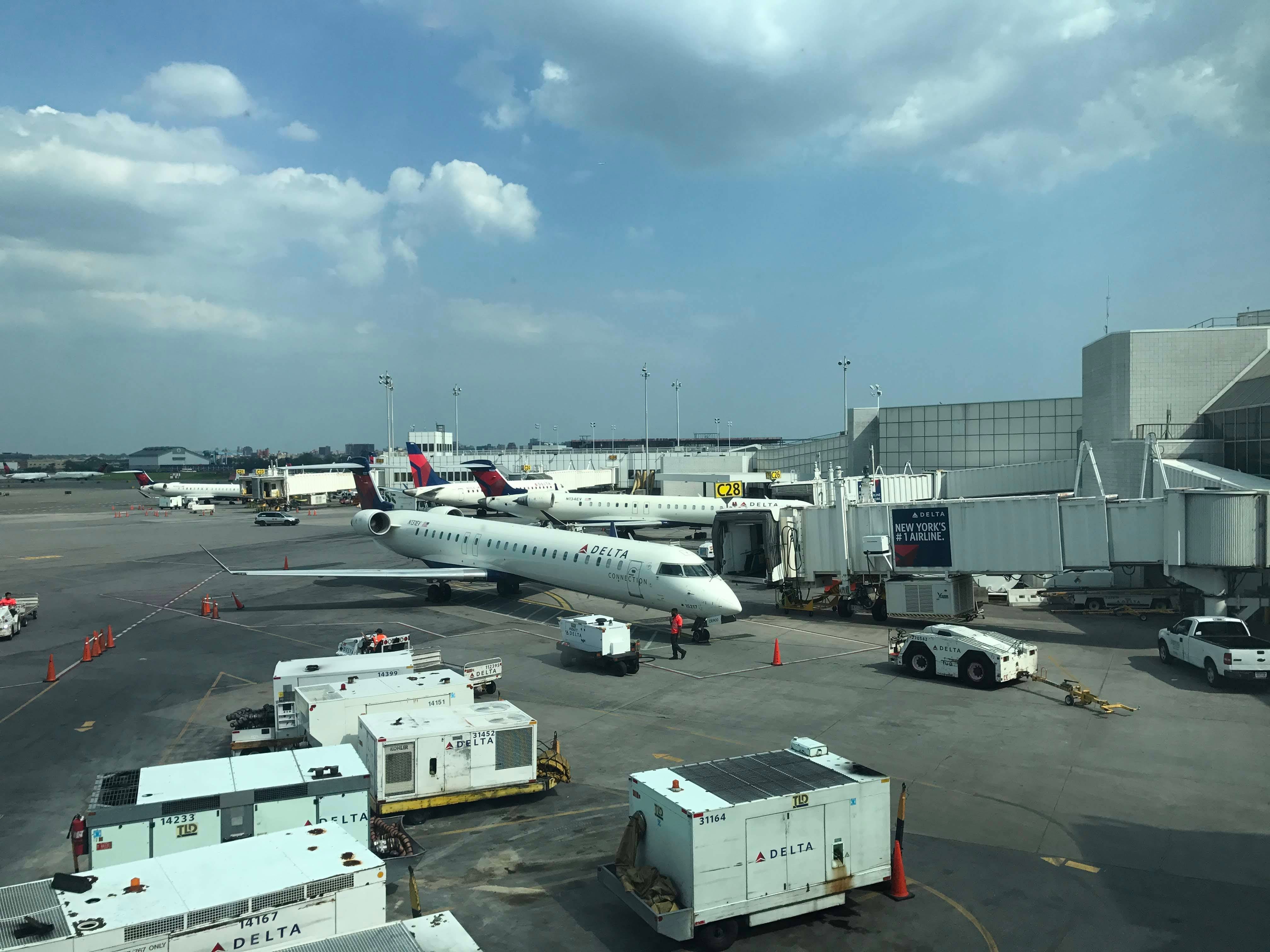Delta CEO Promises More Ways to 'Burn Your Miles' After Record Quarter
The juxtaposition couldn't be any more stark. A day after American Airlines watched its stock fall to its lowest point in nearly two years, Delta Air Lines is up nearly 5% on an otherwise jittery day on Wall Street. The airline just announced its Q3 2018 earnings — the first of the major US airlines to do so — reporting stellar revenue figures and a bright forecast to boot. The key drivers behind it? A nearly 20% uptick in "premium product ticket revenues and double-digit percentage increases in cargo, loyalty and Maintenance, Repair and Overhaul revenue."
Delta notched adjusted operating revenue of $11.8 billion for the September quarter, representing an 8% increase year-over-year. Profits were up $127 million for the quarter, with each passenger paying an average of 4% more to fly each mile, and the total number of miles flown by those passengers also increasing by 4%. Said another way, Delta's passengers are flying to more places, and they also paid more for the privilege of doing so compared to past quarters.
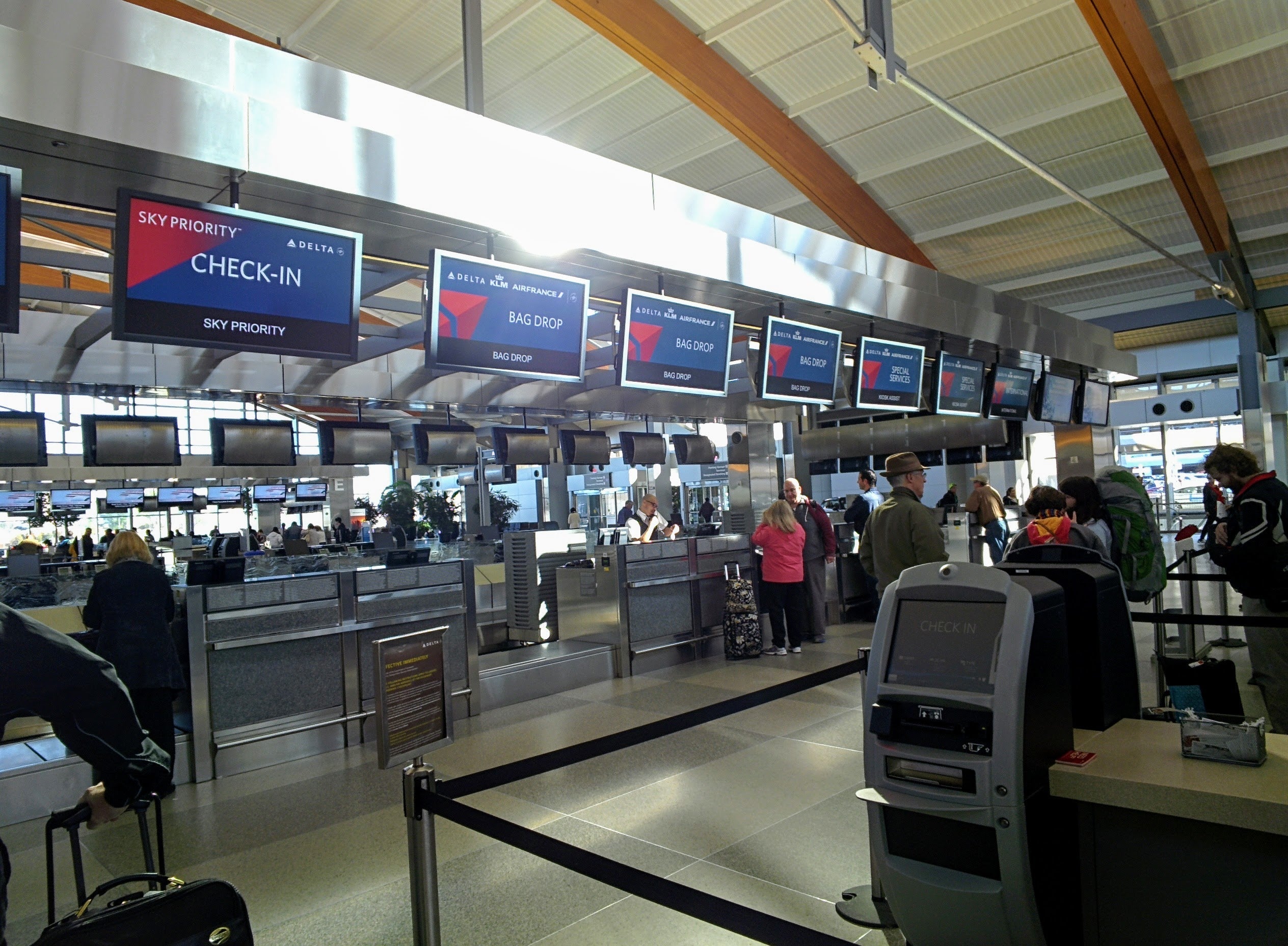
For flyers, it's a trend that you should expect to see continue in the near-term. Delta stated that it anticipates fuel prices to rise around 30% in the upcoming quarter compared to last year, with fares also creeping up between 3% and 5%.
During an investor call, Delta CEO Ed Bastian began his remarks by heaping praise upon the entire Delta team for "their incredible work," specifically citing their efforts in minimizing customer impact during Hurricane Florence. He continued: "We had the busiest travel quarter in our history, [and] demand for the Delta product has never been greater. Our brand has never been healthier, and the service from our team never greater." He also acknowledged the agility of the team in dealing with Hurricane Michael, noting that "Delta was the last carrier out of the Gulf region, and the first back in; we put our customers' needs first, and that's the Delta difference."
Bastian reminded investors that later this month, the airline will celebrate the 10-year anniversary of the merger with Northwest, and noted that overall seat growth for 2019 is expected to hover around 2%. Meanwhile, Glen Hauenstein, Delta's President, added that Delta "had its busiest summer ever, with solid demand in both leisure and business."
Burn Those SkyMiles
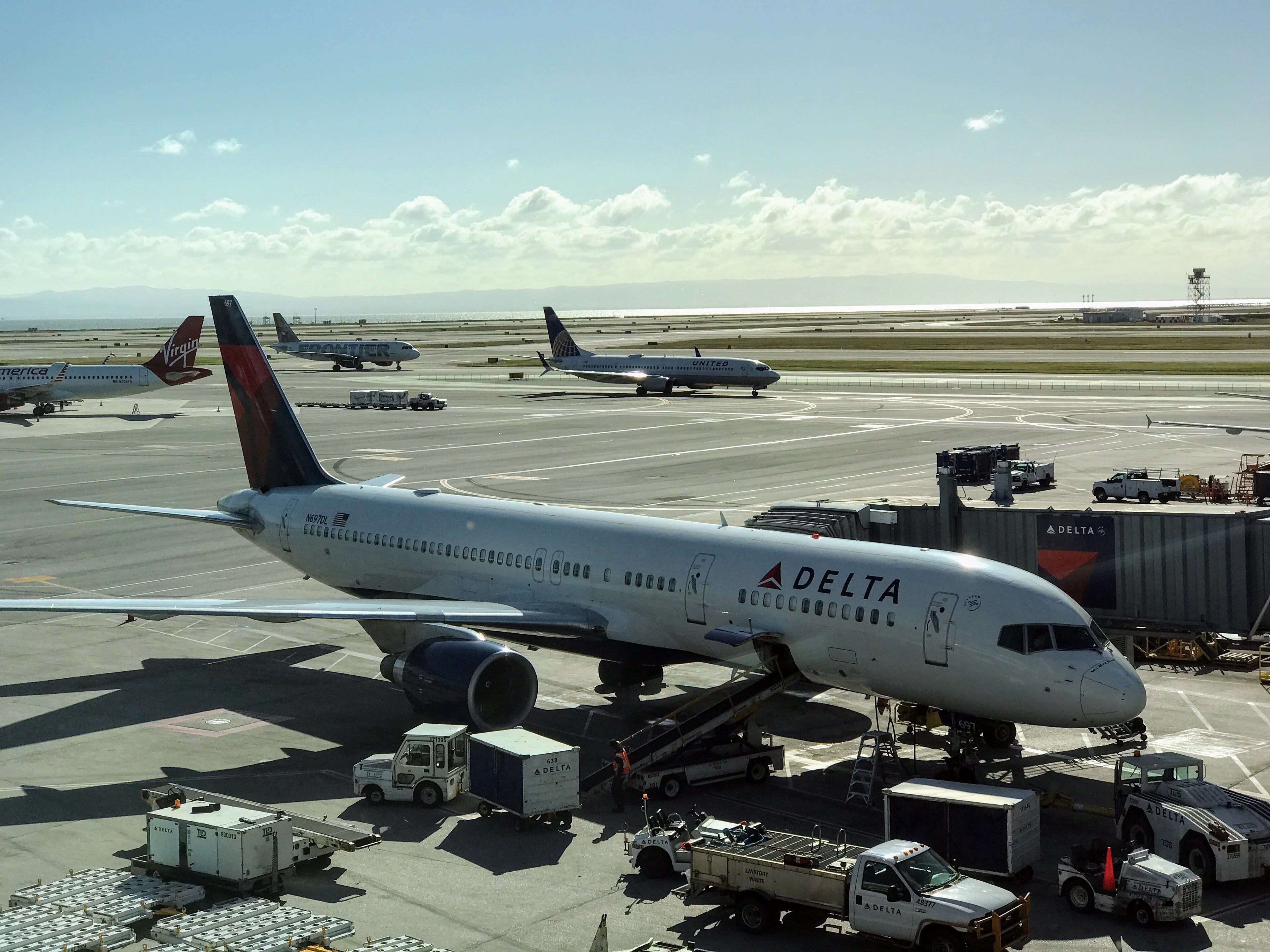
While the overall value of the SkyMiles program has declined in recent years, Delta has bandaged the bleeding a bit with an array of award ticket sales throughout 2018. And, as is clearly demonstrated in the financial results above, Delta loyalists seem to be giving those devaluations something of a pass while enjoying heightened levels of service, industry-leading on-time performance and improved premium cabins as newer birds make their way into Delta's fleet.
In other words, it's a bit easier to give a pass to SkyMiles devaluations when you're routinely flying an airline that sticks to its schedule, and which bends over backward to treat you like a VIP. On Wednesday, we highlighted a story of Delta working to untangle a complicated mileage credit situation for one of its lowest-tier elites (Silver Medallion), and I'm personally able to pen this report thanks to Delta's flexibility in flying me home a day early to beat the impending punch of Hurricane Michael.
Separately, Bastian answered an investor question on revenue allocation with a remark that caught the attention of mileage aficionados the world over. While the inquiry was centered on how Delta categorizes upsell revenue (e.g. if you purchase a $300 Main Cabin ticket, and then fork out another $100 afterward to buy up into the First Class cabin, Delta sees the entire $400 as a boost in premium cabin revenue), Delta's CEO used it as an opportunity to elaborate. "We want to give you more ways to burn your miles," said Bastian. "[We want you] to be able to buy what you want from us, and [for Delta] to be able to supply it to you."
Product Talk
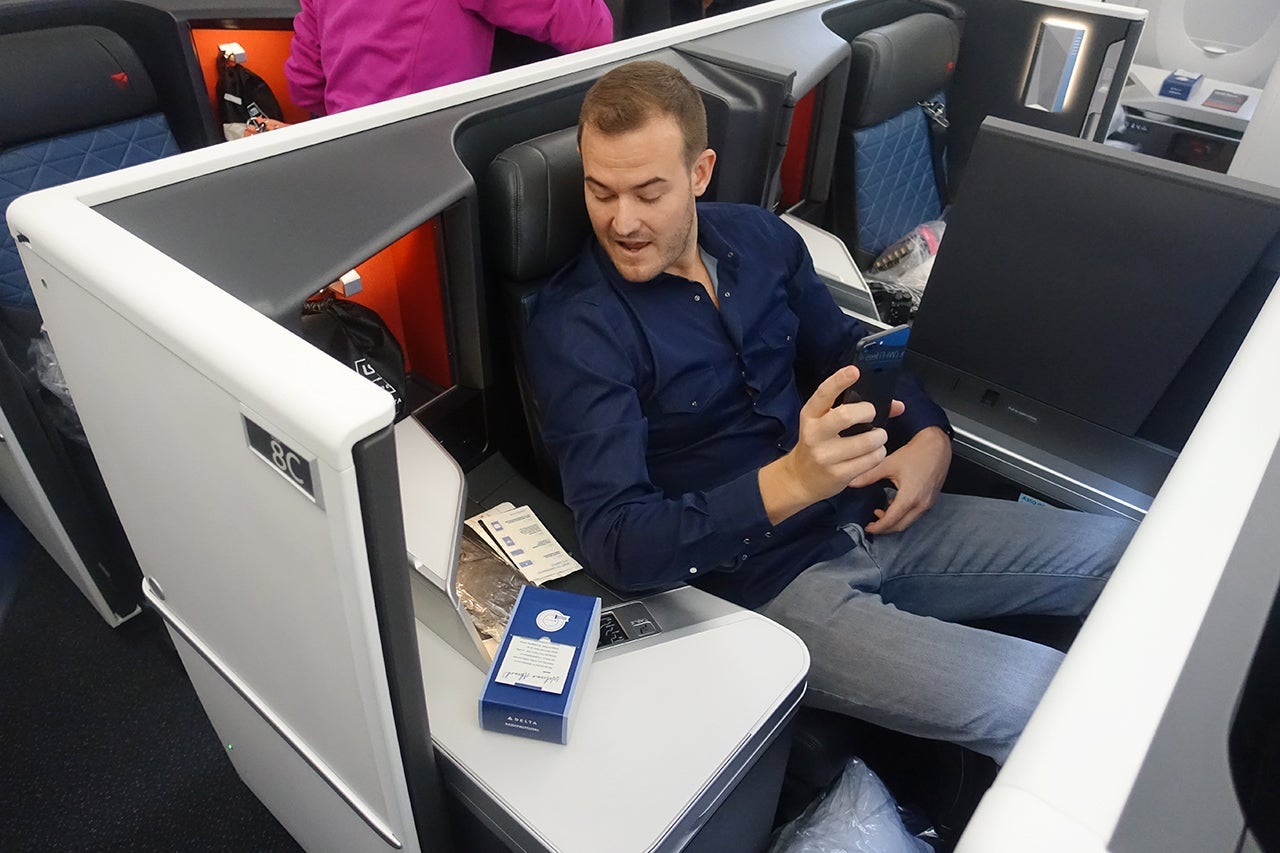
On the product front, Bastian began by alluding to future changes coming down the pike for the purchase experience. Bastian stated that Delta is "growing [its] premium cabins through upgauging," citing the Airbus A321 and Boeing 737-900 which are replacing the carrier's fleet of MD-88s. "Beginning in 2020, we will replace other narrow bodies with A321s," Bastian continued, "and we'll bring Premium Select to all of our long-haul international [routes] over the next few years." Hauenstein also gave a nod to the fantastic Airbus A350-900, confirming that "ten A350s are now deployed in the Pacific," with Delta "encouraged by revenue trends associated with the Delta One and Premium Select cabins."

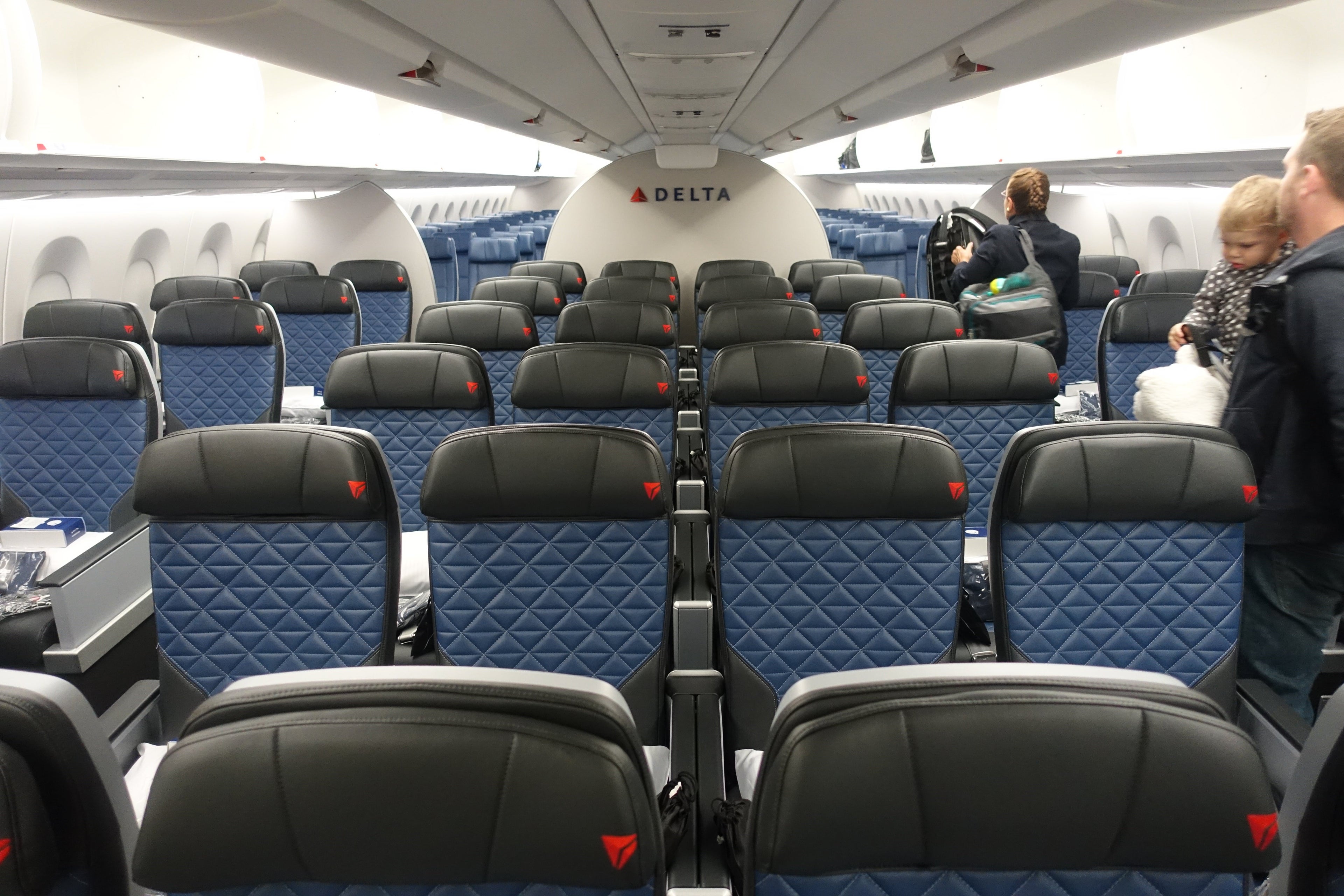
Investors were also told to expect smarter, more dynamic upsell opportunities to Comfort+ (which, by the way, is classified as a premium cabin product from a financial standpoint). While upsells today generally take into account the overall length of the flight (e.g. it's more expensive to buy up to Comfort+ from Main Cabin on a 10-hour flight between Atlanta and Venice compared to a 63-minute hop between New York and Raleigh), it sounds like overall market dynamics will begin to impact pricing soon. An example was given citing a "$5 to $10 upcharge" on a highly competitive route, compared to higher rates on routes with less intense competition.
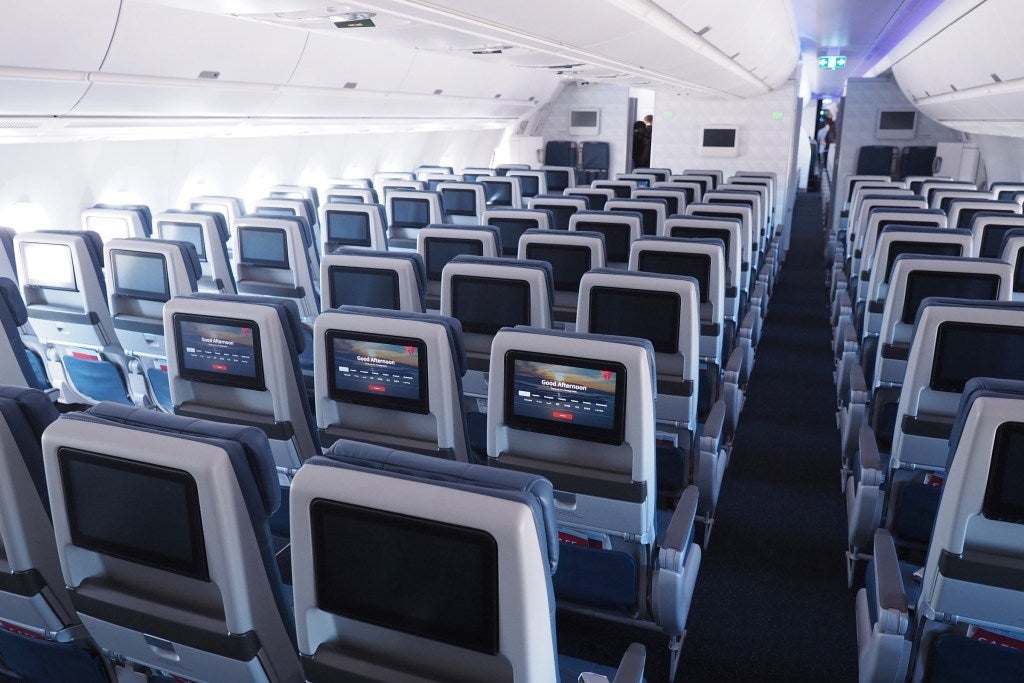
Bastian also took a moment to address the other end of the spectrum: basic economy. He stated that Delta's introduction of the BE product was in response to low-cost carriers like Spirit and Frontier, after realizing that Delta did not have a differentiated product to compete with that sector. "Ours is the most humane of all basic economy, as we don't charge for overhead baggage," said Bastian. "[We asked] 'What did people want to buy from us that we weren't selling?' We still believe we're in the early innings on this. [Basic economy] is still not available everywhere, and we'll be expanding those products and services in the years to come."
Answering a follow-up question on overall demand for BE in the wake of American's decision to allow carry-on bags with basic economy fares back in July, Bastian said: "We don't sell an incredible amount of basic economy. It's a very small percentage of our total sales, and we haven't seen a change in that with American Airlines' new policy. Most of our customers choose to sell-up into the Main Cabin."
All-in With American Express
Delta President Glen Hauenstein had only positive things to say about the airline's continued relationship with American Express. "We saw record acquisitions of our cobranded American Express cards with double-digit increases in spend," said Hauenstein. "More customers than ever are seeing value from their SkyMiles Amex cards." What's particularly interesting here is that it's on the heels of a significant policy change that many assumed would negatively impact cobranded Amex spend. Just over a year ago, Delta announced that the MQD waiver for Diamond Medallion would be hiked 10x, from $25,000 in a calendar year to a staggering-if-not-comical quarter-million dollars per calendar year.
It's not all that difficult to achieve 125,000 MQMs, or credited miles flown, without also achieving $15,000 in MQDs, or credited dollars spent. In other words, Diamond Medallions had the opportunity to only sweat the MQM portion so long as they put $25,000 of total spend on a cobranded Delta Amex card during the same year. Once that threshold soared to $250,000, many figured that top-tier elites would simply shift that spend to other cards.
Even if that did indeed occur, a wave of others are compensating. Perhaps it has to do with a strong overall economy and the increased welcome bonuses we've seen on Delta's range of cobranded Amex cards, but either way, it appears that the Delta-Amex relationship is doing quite well.
Final Takeaways
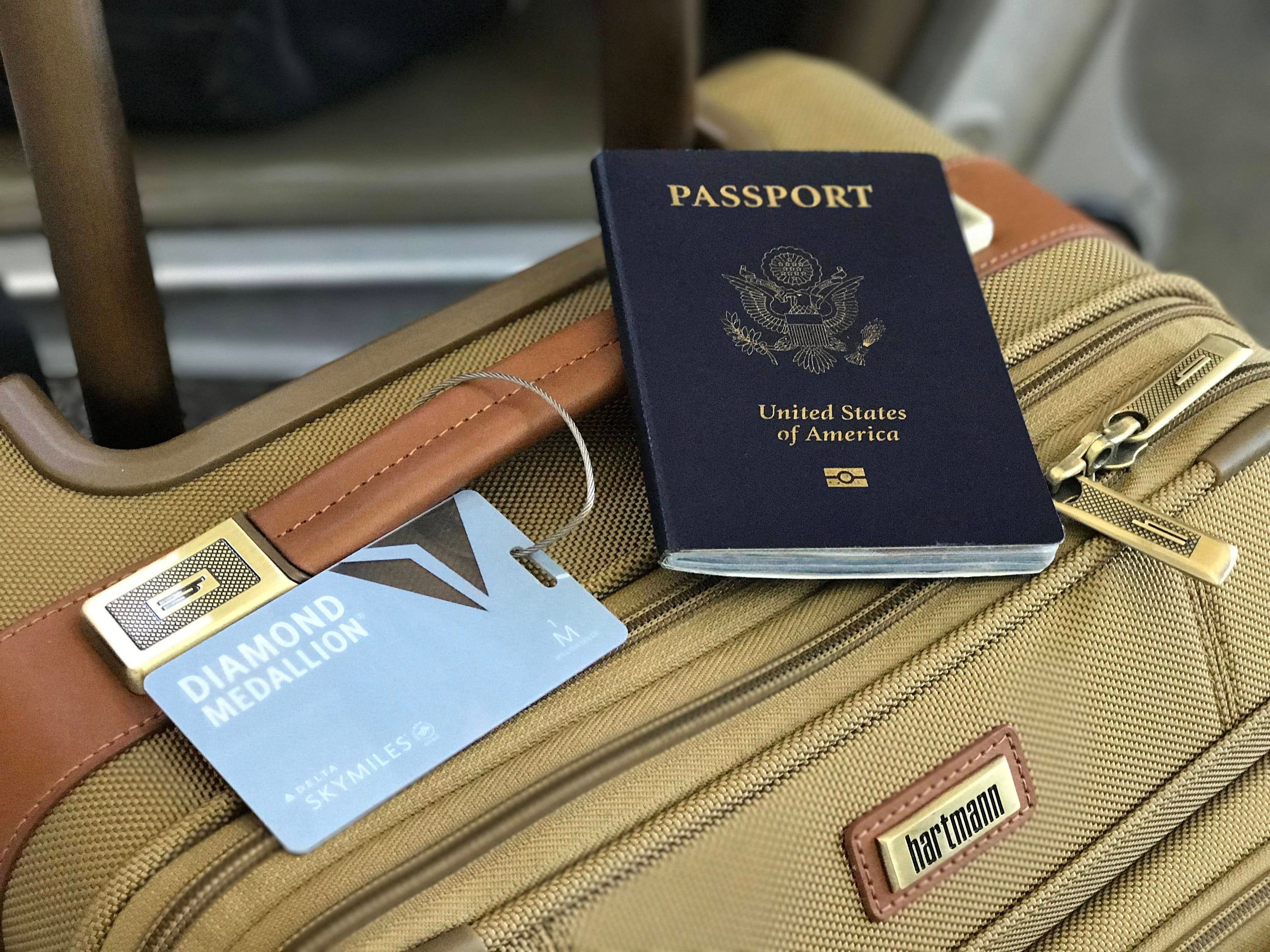
Based on this quarter's results, it's clear that Delta is in a position of strength, from both financial and loyalty standpoints. It's showing no troubles whatsoever selling out cabins on profitable routes, and passengers who have a choice of carrier are continuing to choose Delta. Perhaps the biggest eye-opener for those seeking upgrades was this nugget, tucked into the closing moments of Delta's Q3 2018 investor call. CEO Ed Bastian confirmed that Delta has moved from "selling about 13% of the first class cabin to now selling about 60% of the cabin, with the rest available for upgrade."
For those following Delta, this statistic should come as no surprise. The airline made clear several years ago that it would trigger alluring buy-up offers to Main Cabin and Comfort+ passengers in order to sell more tickets in the forward cabin. And, in turn, give away less of those seats via upgrades. While this is great for investors — Wall Street loathes giving something away when you can charge for it — it's a tougher pill to swallow for loyal elites. Over the past several years as a Diamond (Delta's highest published status tier), I've noticed a decrease in the amount of complimentary upgrades I'm given. Plus, far more of the upgrades I do receive are granted either a day before or at the gate (as opposed to at the 5-day window, which Diamonds are entitled to if Delta so chooses).
There is a silver lining there, though. Bastian continued: "We're seeing Comfort+ load factors in the high 60% range, and Premium Select — our newest product, which is only available on limited routes — is selling at about 85%. We're excited about the future. We want to give you more opportunity to control your travel, and upgrade with whatever currency you want. Let's say your company buys you a coach ticket and you want to sit in Premium Select. We want to give you more upsell options, say 17,000 miles or $170 in cash. Those kinds of offers are where we want to go, and we want to make them simpler to buy."
Delta's CEO also confirmed that we'll see "mileage up-sells [from Delta's website] available from Q4 2018, with mileage upsells on mobile coming in early 2019."
TPG featured card
at Capital One's secure site
Terms & restrictions apply. See rates & fees.
| 5X miles | Earn 5X miles on hotels, vacation rentals and rental cars booked through Capital One Travel |
| 2X miles | Earn unlimited 2X miles on every purchase, every day |
Pros
- Stellar welcome offer of 75,000 miles after spending $4,000 on purchases in the first three months from account opening. Plus, a $250 Capital One Travel credit to use in your first cardholder year upon account opening.
- You'll earn 2 miles per dollar on every purchase, which means you won't have to worry about memorizing bonus categories
- Rewards are versatile and can be redeemed for a statement credit or transferred to Capital One’s transfer partners
Cons
- Highest bonus-earning categories only on travel booked via Capital One Travel
- LIMITED-TIME OFFER: Enjoy $250 to use on Capital One Travel in your first cardholder year, plus earn 75,000 bonus miles once you spend $4,000 on purchases within the first 3 months from account opening - that’s equal to $1,000 in travel
- Earn unlimited 2X miles on every purchase, every day
- Earn 5X miles on hotels, vacation rentals and rental cars booked through Capital One Travel
- Miles won't expire for the life of the account and there's no limit to how many you can earn
- Receive up to a $120 credit for Global Entry or TSA PreCheck®
- Use your miles to get reimbursed for any travel purchase—or redeem by booking a trip through Capital One Travel
- Enjoy a $50 experience credit and other premium benefits with every hotel and vacation rental booked from the Lifestyle Collection
- Transfer your miles to your choice of 15+ travel loyalty programs
- Top rated mobile app

